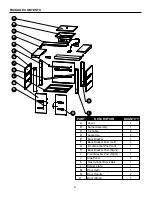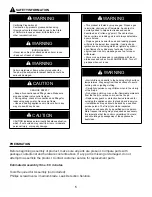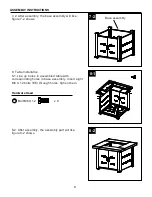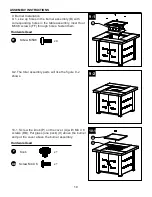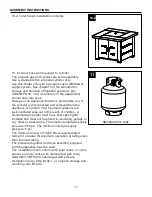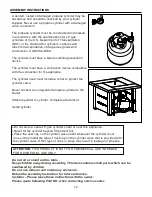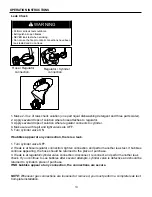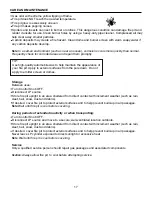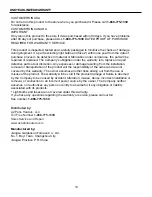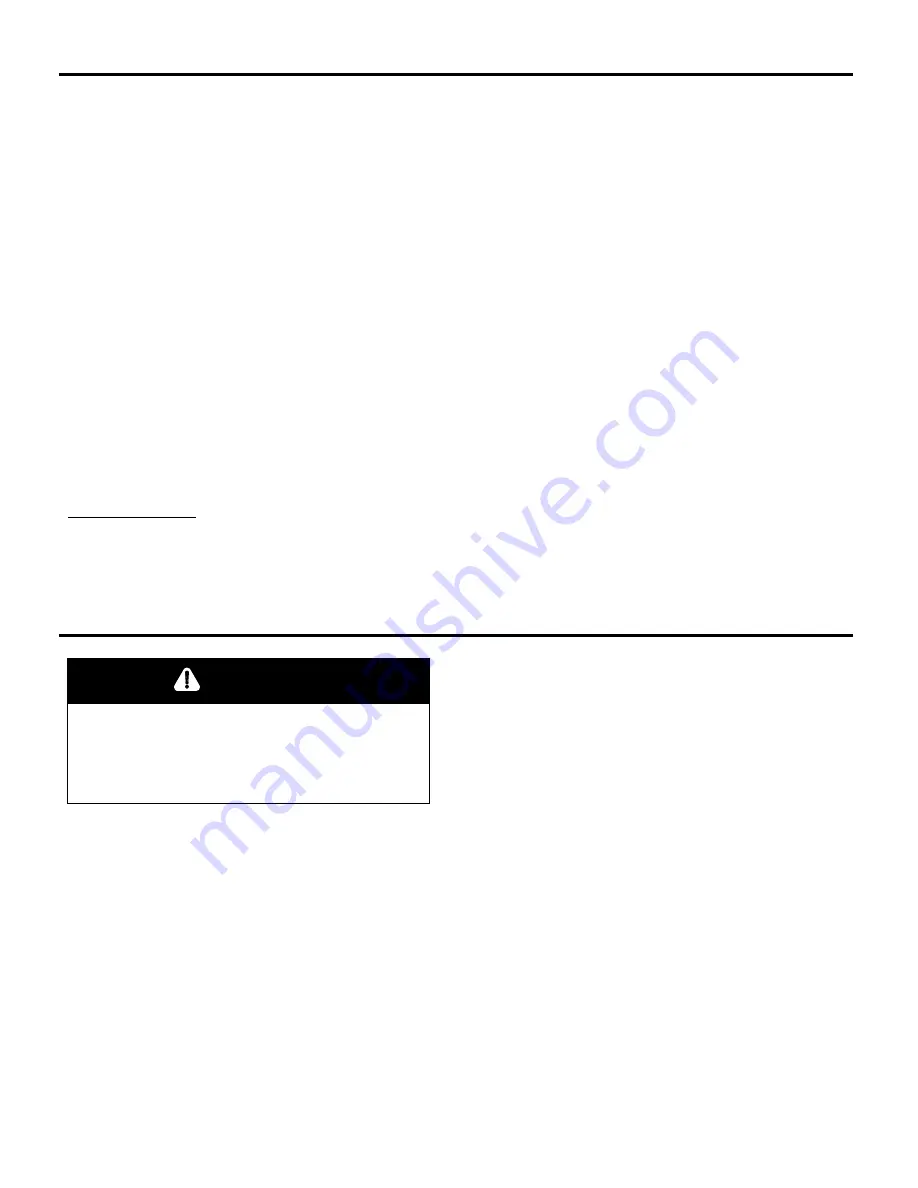
16
OPERATION INSTRUCTIONS
CARE AND MAINTENANCE
9. Fire pit is away from gasoline or other flammable liquids or vapors.
10. Fire pit is away from windows, air intake openings, sprinklers and other water sources.
11. Fire pit is at least 24 in. on rear and at least 24 in. on sides from combustible materials.
12. Fire pit is on a hard and level surface.
13. There are no signs of spider or insect nests.
14. All burner passages are clear.
15. All air circulation passages are clear.
16. Children and adults should be alerted to the hazards of high surface temperatures and should stay
away to avoid burns or clothing ignition.
17. Young children should be carefully supervised when they are in the area of the fire pit.
18. Clothing or other protective material should not be hung from the fire pit, or placed on or near the
fire pit.
19. Any guard or other protective device removed for servicing the fire pit must be replaced prior to
operating the fire pit.
20. Installation and repair should be done by a qualified service person. The fire pit should be inspected
before use and at least annually by a qualified service person.
21. More frequent cleaning may be required as necessary. It is imperative that control compartment,
burner and circulating air passageways of the fire pit be kept clean.
After Operation
1. Gas control is in OFF position.
2. Gas Tank valve is OFF.
3. Disconnect Gas line.
WARNING
FOR YOUR SAFETY:
• Do NOT touch or move fire pit for at least 45 minutes
after use.
• Reflector is hot to the touch.
• Allow reflector to cool before touching.
To enjoy years of outstanding performance from your fire pit, make sure you perform the following
maintenance activities on a regular basis:
Keep exterior surfaces clean.
1. Use warm soapy water for cleaning. Never use flammable or corrosive cleaning agents.
2. While cleaning your unit, be sure to keep the area around the burner dry at all times. Do not submerge
the control valve assembly. If the gas control is submerged in water, do NOT use it. It must be replaced.
a. Keep the appliance area clear and free from combustible materials, gasoline and other
flammable vapors and liquids.
b. Do not obstruct the flow of combustion and ventilation air.
c. Keep the ventilation opening(s) of the cylinder enclosure free and clear from debris.
3. Air flow must be unobstructed. Keep controls, burner, and circulating air passageways clean. Signs
of possible blockage include:

